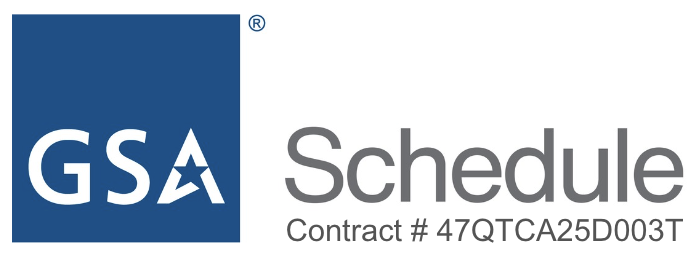
That familiar knot in your stomach when facing a challenge. The racing pulse before speaking up in a meeting. The sweaty palms when meeting someone new. These physical reactions to low confidence are universal experiences that remind us how deeply our self-perception affects our entire being.
Yet there's another side to this coin – moments when you feel completely in your element, when your capabilities align perfectly with the task at hand. That sense of quiet assurance isn't just pleasant; it's transformative. The good news? Confidence isn't a fixed trait you're born with or without. It's a skill you can develop through intentional practice and mindset shifts.
Start with What You’ve Got: Recognizing Your Existing Strengths
Start by cataloging your abilities, no matter how small they seem. Create a list and document everything from your knack for organization to your ability to make people laugh. Are you great at remembering birthdays? Organizing chaos into color-coded calm? That counts. These aren't trivial skills; they're evidence of your competence that you can reference when doubt creeps in.
This exercise serves as concrete proof that you already possess valuable abilities. Your brain responds positively to this self-recognition, creating a neurological foundation for increased confidence.
Flip the Script on Failure
Stumbling blocks are inevitable, but they don't define your worth or potential. Instead of viewing mistakes as confirmation of inadequacy, treat them as data points in your growth journey. Every misstep contains valuable information about what to adjust to next time.
Consider this perspective shift: rather than "I failed," try "I discovered what doesn't work." This subtle change in language transforms setbacks from identity threats into learning experiences, preserving your confidence while promoting growth.
Move Your Body, Support Your Mind
Your mental state is intimately connected to your physical well-being. Regular movement, even brief daily walks, enhances both physical strength and mental clarity. Resistance training builds literal strength that translates into metaphorical confidence in your body's capabilities.
Nutrition plays an equally important role. Foods rich in omega-3 fatty acids, like those found in Mediterranean-style eating patterns, support brain health and emotional stability. Adequate sleep – ideally seven to nine hours nightly – ensures you're operating from a place of mental sharpness rather than fatigue-induced doubt.
Build Mental Muscles
Confidence isn’t all pep talk and power poses. Just as physical exercise builds bodily strength, mental challenges enhance cognitive confidence. Engage in activities that stretch your thinking: solve puzzles, learn new concepts, or write detailed letters to distant friends. These activities create a sense of mental accomplishment that builds overall self-assurance.
The completion of challenging mental tasks provides immediate confidence boosts while building long-term intellectual resilience.
Get Present (Really Present)
Dedicate time each day to disconnect from digital stimulation and simply exist in the present moment. This practice, whether through formal meditation or quiet reflection, helps you develop a clearer sense of self separate from external validation.
A study published in the National Library of Medicine consistently shows that mindfulness practices enhance self-awareness and emotional regulation – both crucial components of genuine confidence. Apps and guided programs can provide structure for beginners, making this practice accessible anywhere.
Try Something New (Even if You’re Bad at It!)
Hidden talents often remain undiscovered until you venture into new activities. Learning unfamiliar skills creates new neural pathways and expands your sense of what's possible. Whether it's photography, cooking, gardening, or public speaking, mastering basics in any new area generates excitement and capability that extends beyond that specific skill.
The process of learning itself builds confidence in your ability to grow and adapt – perhaps the most valuable confidence of all.
Document Positive Feedback
Create a file, document, or journal where you capture compliments, positive feedback, and acknowledgments you receive. Include the source, exact words, and context. This tangible collection serves as evidence of your impact on others, countering the inner critic that questions your value.
During moments of self-doubt, reviewing this record provides objective proof of your positive qualities and contributions.
Embrace Strategic Authenticity
Here's a liberating truth: everyone experiences confidence fluctuations. The person who seems unshakeable in presentations might feel uncertain in social situations. The natural athlete might doubt their academic abilities. Understanding this universality of insecurity normalizes your own struggles and reveals that apparent confidence often involves conscious choice rather than natural ease.
Acting with confidence, even when you don't fully feel it, often leads to genuine confidence through positive experiences and feedback.
Contribute to Something Greater
Engaging in volunteer work or community service provides perspective on your abilities while creating meaningful impact. Contributing your skills to causes you care about often reveals capabilities you didn't know you possessed while generating the profound satisfaction that comes from making a difference. An article published in the National Library of Medicine states that those that participated in volunteerism had an increased sense of participation, self-esteem and self-efficacy, and reduced loneliness.
This external focus can break the cycle of self-criticism while building practical evidence of your value to others.
Consider Professional Support
If confidence challenges persist despite your efforts, mental health professionals can help identify underlying patterns or beliefs that maintain self-doubt. Therapy provides tools for understanding and changing thought patterns that undermine confidence.
Modern options include virtual coaching and therapy services that offer flexible scheduling and accessible support for building lasting confidence.
Transform Intention into Action
The most powerful confidence-building strategy is taking concrete steps toward your goals despite feeling uncertain. If you lack confidence in public speaking, join a speaking group. If you doubt your creative abilities, start a small project. If social situations feel overwhelming, practice conversations in low-stakes environments.
Action creates competence, and competence builds genuine confidence. Each small step forward provides evidence that you can handle challenges, creating an upward spiral of capability and self-assurance.
Confidence Is a Practice, Not a Destination
Building confidence isn't about eliminating all uncertainty – it's about developing the ability to move forward despite doubt. Every strategy you implement, every small action you take, contributes to a stronger sense of self. Your confidence grows not through perfection, but through consistent effort and self-compassion.
The person you're becoming through this process – more resilient, more capable, more assured – is worth every bit of effort you invest. Your journey toward unshakeable confidence begins with your very next action.
More for Your Mental Toolbox

A Sigh of Relief: Breathing Exercises for Better Sleep
Intentional breathing slows your mind and body, helping you release the day, ease stress, and drift into deeper sleep. A few slow breaths can reset your whole night.
Read more →
Mastering the Art of Balanced Leadership
Balanced leadership is about emotional intelligence, stress management, self-awareness, and coaching. Leaders must align values, prioritize well-being, and empower teams to solve problems.
Read more →








